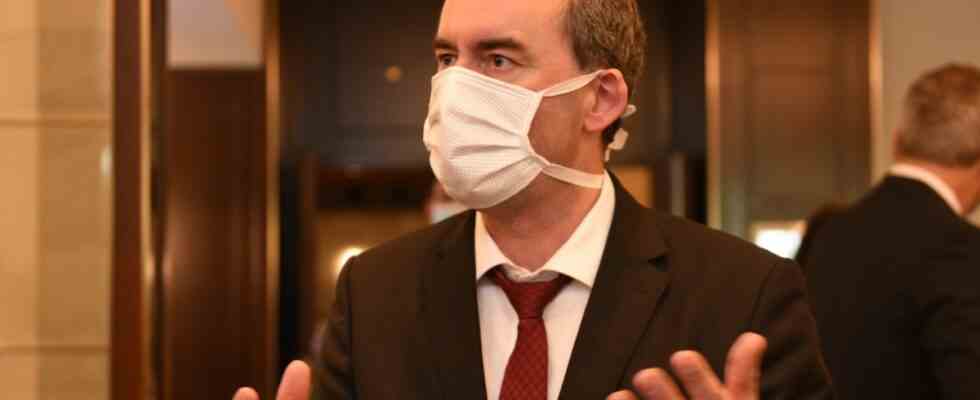At the beginning of the pandemic, Bavaria’s Minister of Economic Affairs demanded that eleven possible suppliers of corona protective clothing be called every day. Particularly piquant: The first name was a party friend of the Free Voters, who is now accused of suspected fraud.
Christian Wittstadt, one of the most important witnesses in the mask investigation committee of the Bavarian state parliament, can still clearly remember this rather unusual event with Minister of Economic Affairs Hubert Aiwanger. It’s about a list by Aiwanger of possible suppliers of protective clothing against the corona virus, about SMS and calls from the minister, and about massive pressure. And that none of this has done much in the fight against the pandemic. Particularly piquant: At the top of Aiwanger’s list, he is the state leader of the Free Voters, was a party friend of his. He, in turn, has been charged with suspected fraud in the sale of masks to the Free State.
Wittstadt, who is deputy chief of the riot police in Dachau, headed a special unit of the Free State to procure protective clothing against the corona virus in spring 2020. This “Corona Pandemic Procurement Support Group” consisted of the police and technical aid organization and was in Geretsried near Munich. On Monday, April 6th, there was a larger support group with representatives from the Ministry of Economy and Health and other organizations.
Quite quickly at the meeting, Aiwanger held up a “handwritten list” with eleven names and telephone numbers and said, “we’ll call them every day now.” This is what the Wittstadt police officer reported when he testified on the Friday before Pentecost in the state parliament’s investigative committee. There, Aiwanger’s list is shown, written in green ink, the color of the minister. Wittstadt also remembers who Aiwanger meant by “we”. Both the support group and the health and economic ministries should have telephoned these possible eleven suppliers every day in order to obtain protective clothing that was urgently needed at the time.
He tried to “extremely speed up” the review process
In the days that followed, Wittstadt recalls, Aiwanger contacted him by text message and phone and said, “This and that is coming.” That was associated with “extreme pressure”. Aiwanger “pushed like crazy” and tried to “extremely speed up” the review process. The task of the support group was to view and check the several thousand offers for masks and other protective clothing. And then to suggest to the State Office for Health and Food Control (LGL) what could be obtained from whom.
According to Wittstadt, not much came of Aiwanger’s list. “If everyone could have delivered what was originally hoped for, we would have been off the hook very quickly.” But most of the people on Aiwanger’s list couldn’t have gotten anything. One person who, together with a partner, was able to deliver around eleven million so-called surgical masks in April via a joint company from the Upper Palatinate was the free-voter local politician Matthias Penkala.
But as early as mid-2020, Wittstadt’s support group put Penkala’s company on a list of unreliable providers. According to Wittstadt, however, Aiwanger did not learn anything about it. Investigations followed later and recently an indictment because false certificates are said to have been presented for some of the masks. Penkala and his partner deny this.

